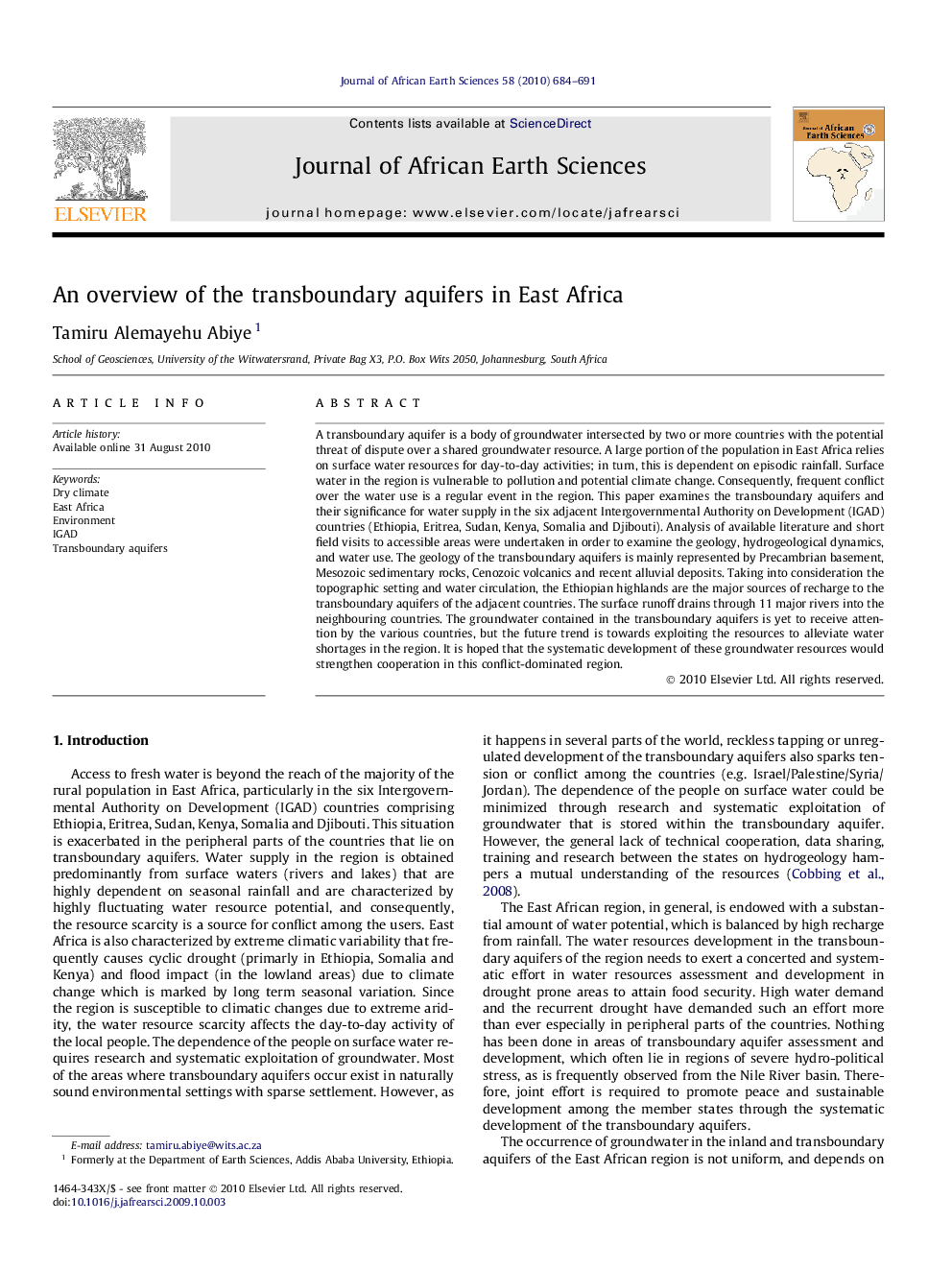| Article ID | Journal | Published Year | Pages | File Type |
|---|---|---|---|---|
| 4729352 | Journal of African Earth Sciences | 2010 | 8 Pages |
A transboundary aquifer is a body of groundwater intersected by two or more countries with the potential threat of dispute over a shared groundwater resource. A large portion of the population in East Africa relies on surface water resources for day-to-day activities; in turn, this is dependent on episodic rainfall. Surface water in the region is vulnerable to pollution and potential climate change. Consequently, frequent conflict over the water use is a regular event in the region. This paper examines the transboundary aquifers and their significance for water supply in the six adjacent Intergovernmental Authority on Development (IGAD) countries (Ethiopia, Eritrea, Sudan, Kenya, Somalia and Djibouti). Analysis of available literature and short field visits to accessible areas were undertaken in order to examine the geology, hydrogeological dynamics, and water use. The geology of the transboundary aquifers is mainly represented by Precambrian basement, Mesozoic sedimentary rocks, Cenozoic volcanics and recent alluvial deposits. Taking into consideration the topographic setting and water circulation, the Ethiopian highlands are the major sources of recharge to the transboundary aquifers of the adjacent countries. The surface runoff drains through 11 major rivers into the neighbouring countries. The groundwater contained in the transboundary aquifers is yet to receive attention by the various countries, but the future trend is towards exploiting the resources to alleviate water shortages in the region. It is hoped that the systematic development of these groundwater resources would strengthen cooperation in this conflict-dominated region.
Research highlights► Transboundary aquifers are reliable water source. ► Ethiopian highlands are the major sources of recharge to the transboundary aquifers of the adjacent countries. ► Variable groundwater potential in the transboundary aquifer. ► Lithology and degree of water–rock interaction control the natural quality of groundwater.
